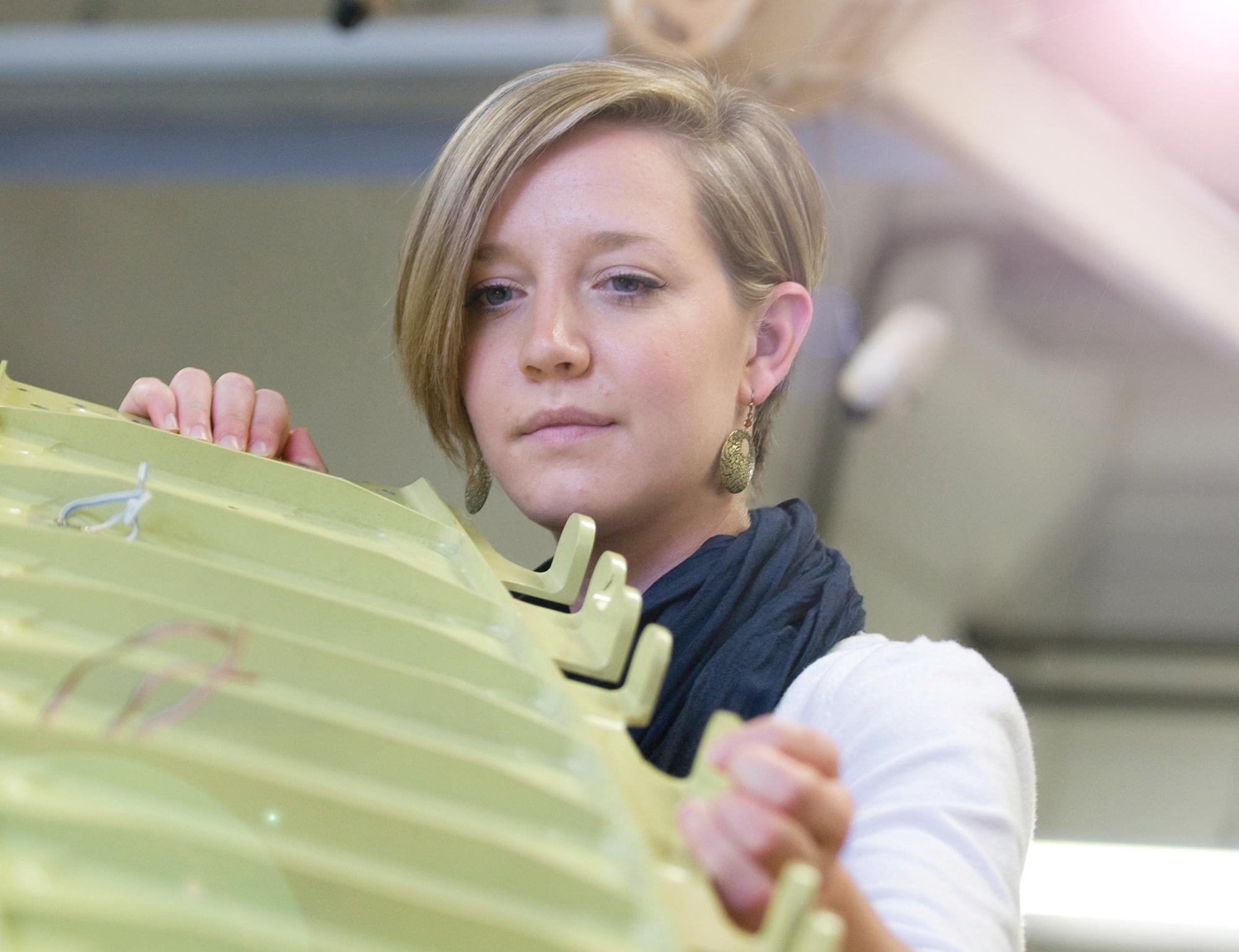Why an engineering revolution is brewing
Women in Engineering Day on 23 June is an ideal opportunity to change the rhetoric and rethink careers in a profession that is shedding its stereotypes

Your support helps us to tell the story
From reproductive rights to climate change to Big Tech, The Independent is on the ground when the story is developing. Whether it's investigating the financials of Elon Musk's pro-Trump PAC or producing our latest documentary, 'The A Word', which shines a light on the American women fighting for reproductive rights, we know how important it is to parse out the facts from the messaging.
At such a critical moment in US history, we need reporters on the ground. Your donation allows us to keep sending journalists to speak to both sides of the story.
The Independent is trusted by Americans across the entire political spectrum. And unlike many other quality news outlets, we choose not to lock Americans out of our reporting and analysis with paywalls. We believe quality journalism should be available to everyone, paid for by those who can afford it.
Your support makes all the difference.How many engineers does it take to make a cup of tea? Instead of checking your phone next time you’re waiting for the kettle to boil, take a moment to think about it.
Before those tiny leaves get near the planes, trains, automobiles and ships that transport them across the world, they will have been processed and packed on a plantation. Assembly lines do clever things with bags, strings, tags and specialist packaging, while product designers work with production managers to introduce new ranges of mugs, teapots, spoons and strainers.
The water piped to the tap and poured into your taken-for-granted electric kettle will have boiled long before you’ve thought about that splash of milk from cows in an automated milking parlour. And don’t even start on the biscuits: they require a brainstorm all of their own.
“I am astonished at how little we know about the processes and people behind items we take for granted in our everyday lives,” says Dr Catherine Hobbs, head of engineering, design and mathematics at The University of the West of England, Bristol (UWE Bristol).
“Engineering is all around us, from the buildings we live in to the clothes we wear; the music we download to gadgets we can’t live without.
“Even when you escape to the great outdoors you take bits of engineering with you in walking boots, tents, bikes, surf boards, sunglasses… yet the UK’s perception of what engineers actually do is misleadingly skewed towards the mechanical.”

Women in Engineering day provides a welcome opportunity to highlight the depth and breadth of careers related to a profession which – according to The Warwick Institute for Employment Research – requires an additional 1.82 million people at all levels for the UK to maintain a sound economy between 2012 and 2022.
In Dr Hobbs’ view, it’s high time the nation got its collective head out from under the car bonnet and encouraged students, teachers and parents to ditch outdated perceptions of a cutting-edge profession that offers great career development and highly competitive salaries across a broad spectrum of industries.
“Most technology is created to help people to do things and it’s that human-centred aspect that makes engineering so exciting,” she says. “People see things differently regardless of gender: an artist will draw out contrasting features to a scientist; a wheelchair user’s perspective won’t mirror that of an ambulant colleague.
"We need a greater diversity of people with a wide range of creative skills to really drive engineering forward.”
Sowing the seeds of excitement among primary school children is key to ensuring that later GCSE choices don’t have a negative impact on options at A-level – but the door isn’t necessarily closed to those whose subjects don’t match university requirements.
Graduates of UWE Bristol include an aerospace engineer who picked all the wrong A-levels but was able to fulfil her subsequent career ambition by taking a foundation course to prepare her for one of the university’s engineering honours degree programmes.
So when you make that next cuppa, view it as a social benefit of engineering. The thought process may just whet your appetite for more.
Join our commenting forum
Join thought-provoking conversations, follow other Independent readers and see their replies
Comments